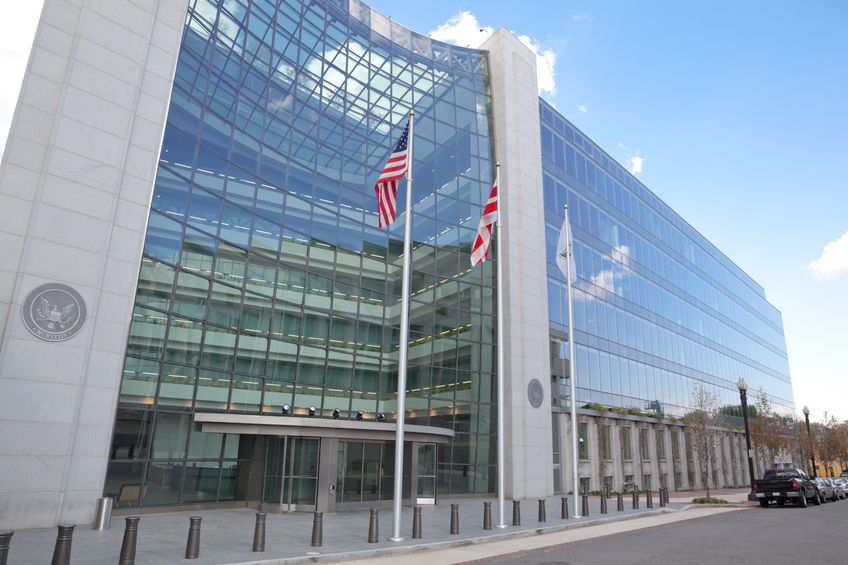Legal Briefs
Planned Auction of “Personal Property” in MJ Capital Case
March 19, 2022An auctioneer is being introduced into the MJ Capital saga to auction off surrendered personal property related to the scheme. Given how large the alleged ponzi was ($200M+), the value of the personal property at stake hardly reaches the same level of excess.
The inventory so far only includes:
- 1 2018 Mercedes Benz CLA 250
- 8 Watches (6 Rolex, 1 Michelle, 1 Gucci)
- 1 Gucci Backpack
- 2 Purses (Luis Vuitton and Christian Dior)
- 1 Louis Vuitton Bag
- 3 rings
- 1 pair of earrings
Additional property could be added, court records indicate. The date, time, and location of the auction has not yet been decided.
PPP Lender Arrested on Fraud Charges Also Allegedly Reversed PPP ACHs, Separate Civil Lawsuit States
March 14, 2022 It’s not just criminal fraud charges that the CEO of MBE Capital Partners is facing. Rafael Martinez, who was arrested two weeks ago for allegedly lying to financial institutions and the government about MBE’s size in order to fraudulently obtain PPP lender status, is also facing a civil suit in New York where more than four dozen co-plaintiffs are suing his company. In it, several of the plaintiffs have alleged that MBE unexpectedly and without notice debited out the full balance of the PPP loans from their accounts weeks or even months after they got funded them in the first place.
It’s not just criminal fraud charges that the CEO of MBE Capital Partners is facing. Rafael Martinez, who was arrested two weeks ago for allegedly lying to financial institutions and the government about MBE’s size in order to fraudulently obtain PPP lender status, is also facing a civil suit in New York where more than four dozen co-plaintiffs are suing his company. In it, several of the plaintiffs have alleged that MBE unexpectedly and without notice debited out the full balance of the PPP loans from their accounts weeks or even months after they got funded them in the first place.
“Since a majority of these [Plaintiffs] had already properly used their PPP proceeds at the time of Defendants reclamation reversal, in a majority of instances the funds withdrawn from each account consisted, in whole or in part, of non-PPP funds,” the lawsuit states.
Plaintiffs contend that MBE had taken this step because MBE had wrongly suspected some type of fraud on the part of the borrowers, and that nevertheless did not have the authority to reverse the ACHs even if it were true. MBE in its public reply denied the allegations and filed a counterclaim against a single individual that had purportedly assisted the plaintiffs in filing their PPP applications.
While the government has brought hundreds of claims against PPP borrowers, this is the first known instance of a PPP lender taking a vigilante approach to suspected fraud by just allegedly debiting back the entirety of the PPP funds. Plaintiffs claim that when MBE did so, that they weren’t even under any kind of investigation by the SBA.
The civil suit in New York is unrelated to the fraud that MBE Capital CEO Rafael Martinez was arrested for. Federally, Martinez is accused of using misrepresentations to trick his way into becoming an authorized PPP lender that helped him pocket $71 million in lender fees in the process. With that Martinez reportedly bought a villa in the Dominican Republic, a Ferrari, and private jets.
The civil suit in New York, meanwhile, can be found under Index Number: 652786/2021
PPP Fraud Case Reports Collusion Between Loan Broker and IRS Supervisor
February 2, 2022 In a PPP scheme that saw twenty-two people get brought up on charges like conspiracy and wire fraud, a federal indictment also alleges collusion between a Supervisory Individual Tax Advisory Specialist with the IRS named Melissa Myrick, and an Atlanta business loan broker named Mark Mason, who was president of Atlanta Business Capital.
In a PPP scheme that saw twenty-two people get brought up on charges like conspiracy and wire fraud, a federal indictment also alleges collusion between a Supervisory Individual Tax Advisory Specialist with the IRS named Melissa Myrick, and an Atlanta business loan broker named Mark Mason, who was president of Atlanta Business Capital.
According to the DOJ, Mason and Myrick worked together to falsify PPP applications by leaving sections like average monthly payroll and number of employees blank. Between May 12 and May 26 of 2020, Myrick signed off on over $280,000 in altered loan applications while also being an active employee with the IRS.
The indictment also says that merchants who received the funding were in on the scam. “Purported business owners communicated with Mason about the fraudulent PPP loan applications, as well as the amounts to include on the Forms 941 and purported payroll spreadsheets submitted with the applications.”
Mason pleaded guilty on January 4 to one count of wire fraud and one count of money laundering in connection with his involvement with the PPP fraud mentioned in the indictment.
The report claims that on top of altering documents to get the government-backed funds, Mason charged ‘success fees’ to the merchants he was working with. While pleading guilty, Mason admitted to funneling fraudulent deals totaling between $3.5M and $9.5M
Mason seemed to attract clients with notoriety onto his scam. Public figures mentioned in the indictment include actress Ion Overman who appeared in Desperate Housewives, music producer Carlos “Clos” Stephens who has worked with hip-hop guru Master P, and actor Dale Godboldo who appeared in The People v. O.J. Simpson.
MJ Capital Investors May Face Tough Road Ahead
January 31, 2022 The second interim report, filed by MJ Capital’s Receiver, offered some discouraging news for investors holding out hope that the business had been legitimate all along. That is if it can even be determined who all the investors are.
The second interim report, filed by MJ Capital’s Receiver, offered some discouraging news for investors holding out hope that the business had been legitimate all along. That is if it can even be determined who all the investors are.
“No such comprehensive investor list was located in the books and records of the Receivership Defendants,” the Receiver stated.
To date, it is believed that there were more than 5,500 total investors who invested more than $200 million altogether. The Receiver says that it has already received estimated loss claims of $150 million.
The challenge with so large a figure is that the business only has $11 million on hand even after cash has been recovered and third parties have surrendered assets. In companies comparable to what MJ Capital purported to be, a recovery of investor capital would be made possible by the gradual collection of customer receivables as the portfolio was wound down. MJ Capital, in alleged ponzi fashion, did not even have a portfolio.
What little business it did have on its books, appears to have been falsified, the Receiver states.
“The Receiver’s ongoing investigation continues to indicate that many of the MCA agreements are forgeries where the supposed customer never signed any document and never received from or paid to the Receivership Defendants any money.”
Many of the affected investors placed their life savings into MJ Capital, the Receiver has learned.
The SEC and MJ Capital’s former CEO, Johanna Garcia, are scheduled to attend Court-ordered mediation on February 28, 2022.
Trial For Brendan Ross in Direct Lending Investments Case Postponed
January 7, 2022The criminal trial of Brendan Ross, the former alternative lending hedge fund operator accused of wire fraud, has been postponed to July 26, 2022. Ross has been out on bond. He has pled not guilty.
PAR Funding SEC Case Ends Mostly in Settlements
December 1, 2021Several defendants in the PAR Funding SEC case settled with the SEC prior to trial, court records reveal. The settlements require defendants to “pay disgorgement of ill-gotten gains, prejudgment interest of disgorgement, and a civil penalty.” Those amounts will be determined by the Court.
Two other defendants have elected to go to trial.
MJ Capital Now Alleged to Be $200M+ Ponzi Scheme
November 22, 2021 Ever since the SEC sued MJ Capital Funding, LLC in August, more information has been revealed about the potential size and scope of the alleged fraud. It was originally estimated that between $70M – $129M was raised by MJ Capital from over 2,150 investors. But now with access to the books and records, investigators believe it is much much higher.
Ever since the SEC sued MJ Capital Funding, LLC in August, more information has been revealed about the potential size and scope of the alleged fraud. It was originally estimated that between $70M – $129M was raised by MJ Capital from over 2,150 investors. But now with access to the books and records, investigators believe it is much much higher.
“From the Receiver’s preliminary investigation, it appears that at least 5,500 investors were induced by Johanna Garcia and over 400 promoters to invest as much as $200,000,000 in this Ponzi scheme,” Court filings state.
If true, that would likely make it the largest fraud in the industry’s history. And it’s been a mess trying to recover the funds, it seems.
“Though several individuals have agreed to return funds and other assets to the Receiver, many others have not, and several continue to mislead the victims by counseling them not to register their claims on the Receiver’s website and advising them that the Receivership Defendants’ business will reopen and that is how they will be repaid.”
The loyalty that many investors feel towards MJ Capital’s former CEO is evident by the raw number of signatures attached to a Change.org petition to offer her sympathy and support. 3,243 names say they support her and her mission to unfreeze the money, which is not going to happen.
Those impacted appear confused as to why the company is in trouble in the first place simply because checks were still being sent out to investors at the time the SEC action took place.
The Receiver says that it’s because MJ Capital “had little in the way of actual MCA business, and could not possibly sustain the promised repayments to investors plus the ‘referral fees’ to promoters. Rather, they were paying these amounts with funds raised from new investors, in classic Ponzi scheme fashion.”
In other words, the checks were bound to stop coming eventually, because there was no actual underlying business.
The alleged fraud is now so large that the SEC has asked the Court for time to file an amended lawsuit. The judge has given them until February to file the documents.
New York’s Fourth Judicial Department Affirms Its Settled Law That MCA Agreements Are Not Usurious
November 16, 2021 New York’s Appellate Division for the Fourth Judicial Department in the Supreme Court of New York issued a landmark decision for the merchant cash advance industry on November 12th.
New York’s Appellate Division for the Fourth Judicial Department in the Supreme Court of New York issued a landmark decision for the merchant cash advance industry on November 12th.
By affirming the original decision issued in Kennard Law P.C. DBA Kennard Law and Alfonso Kennard v High Speed Capital LLC (Index No: 805626/2020), the Appellate Division agreed that among other things that it is settled law in New York that the underlying purchase and sale of future receivables agreement at issue in the case is not a usurious loan.
On June 10, 2020, plaintiffs filed their lawsuit against the defendant, asking the Court to vacate a confession of judgment on the basis that the defendant’s underlying contract dated back on August 24, 2017 was really an unenforceable criminally usurious loan.
The defendant moved to dismiss and the judge granted the motion, holding that:
1. Plaintiffs’ claim of usury is barred by the one-year statute of limitations applicable to usury based claims.
2. Plaintiffs have failed to plead a cognizable cause of action upon which to seek relief.
3. Plaintiffs have no recoverable damages.
4. Plaintiffs’ claims are barred by documentary evidence and settled law in New York holding that the parties’ underlying agreement was not a usurious loan.
Plaintiffs appealed, hoping that the Fourth Department would be persuaded by their arguments that the agreement was usurious. It wasn’t. Instead the Appellate Division unmistakably and unanimously affirmed the original judgment.
The decision demonstrates that there is consensus across judicial departments. Kennard in the Fourth Department (Western New York) is similar to Champion Auto Sales, LLC et al. v Pearl Beta Funding, LLC in the First Department (Manhattan and the Bronx) circa 2018.
Coincidentally, the attorney representing the losing parties, Amos Weinberg, is the same in both landmark cases.
The attorney representing High Speed Capital was Christopher Murray of Stein Adler Dabah & Zelkowitz, LLP.





























